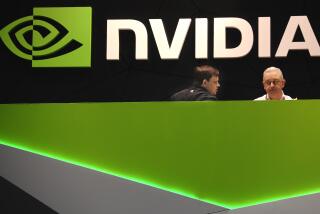Intel CEO says chip shortage will hit bottom in late 2021
Intel Corp. Chief Executive Pat Gelsinger predicted the shortage of semiconductors that’s hurting industries from automotive to consumer electronics will bottom out in the second half of this year before starting to improve.
“I don’t expect the chip industry is back to a healthy supply-demand situation until ’23,” he said in an interview. “For a variety of industries, I think it’s still getting worse before it gets better.”
The economy’s rebound from the depths of the pandemic has caused a flood of demand for the components that are the heart of all modern electronics. Lockdowns and changes in the way that large chunks of the world’s population work have speeded up a shift to digital systems that has further stretched the semiconductor industry’s ability to keep up with the flood of orders, according to Gelsinger.
Intel, the world’s largest chipmaker, gets the majority of its sales by providing processors that run personal computers and servers, machines that are central to data centers and corporate networks. Gelsinger said Intel’s ownership of its factories has left it better placed to keep up with demand than other companies that outsource production, but supply of the other components of computers has fallen short.
Longer term, the chip industry is positioned for a period of growth, Gelsinger predicted. Over the next decade, the increasing uses for chips — including 5G phone systems, electric vehicles and expanded artificial intelligence — will drive strong demand, he said.
Richard Montañez has for years told a story of how he dreamed up Flamin’ Hot Cheetos while working as a Frito-Lay janitor. The archival record, former employees and Frito-Lay itself say otherwise.
That view makes Intel’s CEO a leading voice among executives who are arguing that the current boom in demand for chips is more than just a short-lived supply crunch that will inevitably lead into another of the industry’s periodic cyclical slumps. Others are less sold on the idea that the industry can continue to grow more than 5% annually as Gelsinger and some suggest.
Broadcom Inc. CEO Hock Tan this month stuck to his position that the current supply crunch hasn’t changed the industry into the highflier that Gelsinger and others predict. Although his company posted a 15% sales increase in its most recent quarter, Tan said that fundamentally chip production is a mature industry that will return to slower growth.
The importance of semiconductors to the worldwide economy has come into sharper focus in the last few years thanks to the trade war between the U.S. and China, the pandemic’s effect on the global supply chain and longer chip delivery times currently causing shortages of everything from pickup trucks to game consoles.
U.S. companies dominate the semiconductor industry as measured by sales and design. But production, a vital element in determining the capabilities of chips, has shifted to Asia, where Taiwan Semiconductor Manufacturing Co. and South Korea’s Samsung Electronics Co. have taken leadership.
Gelsinger, who took the top job at Santa Clara-based Intel in February, has pledged to restore the company to its leading role in manufacturing and computer processors. He’s also moving to take on those Asian companies directly by opening the doors of Intel’s plants to other chipmakers, including competitors, and has said he’ll spend heavily to build new factories specifically to act as foundries that make chips for others.







